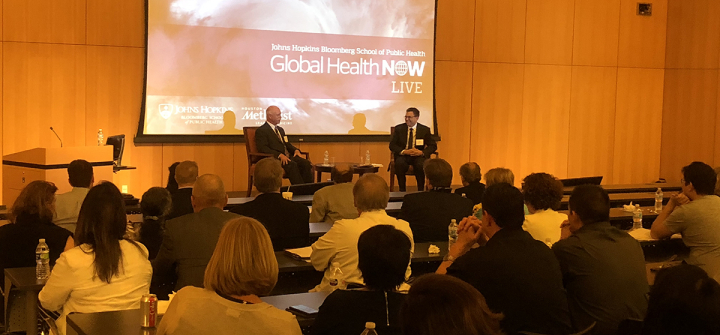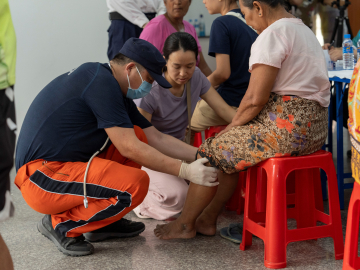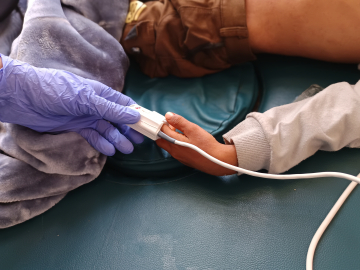Global Health NOW Live: What Disasters Can Teach You
HOUSTON – It’s a sad axiom of preparedness: Disasters are great teachers.
Example: After Tropical Storm Allison swamped the city of Houston with nearly 3 feet of rain in 2001, hospitals in the city lost power because electrical equipment and backup generators were in basements. Hospitals like Memorial Hermann that addressed that issue and others largely withstood Hurricane Harvey’s assault in August 2017.
At last night’s Global Health NOW Live event, David Persse, MD, the Public Health Authority for the City of Houston, shared stories and lessons learned from his decades of front-line experience. In conversation with Josh Sharfstein, MD, Vice Dean of the Johns Hopkins Bloomberg School of Public Health, Persse explained how he’s navigated disasters and prepared for the next ones over the years.
In the midst of a disaster, he said his work has 2 important elements: “It’s my job not to lose my cool. And: “My job is to think how this disaster could go wrong 12 to 24 hours from now.”
Persse also stressed frequent and transparent communication with the public: “It is important to tell people what we know and what we don’t know.” Without clear communication from officials, people will seek out information—and often find rumors.
One of the achievements he’s most proud of is the creation of a catastrophic medical operations center, “a 911 for hospitals.” The center coordinates patient evacuations from hospitals and connects hospitals with much-needed equipment.
Sharfstein shaped the dialog with his own perspectives as a former Baltimore City health commissioner, a former Maryland secretary of health and author of a new book, The Public Health Crisis Survival Guide: Leadership and Management in Trying Times. Global Health NOW readers can receive a special discount here. (Use code: AMPROMD9)
David Persse and Josh Sharfstein share leadership lessons in disasters at the GHN Live event in Houston. (Image: Brian W. Simpson)





